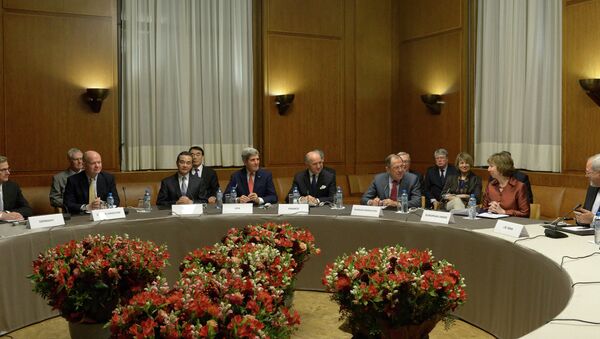MOSCOW, August 28 (RIA Novosti) - The Russian Foreign Ministry said Thursday that Iran could possibly become a full member of the Nuclear Non-Proliferation Treaty.
“The agreements reached on November 24, 2013, in Geneva on Iran’s nuclear program opens the actual perspective that by November of this year an exit [from the issue] and a long-term and reliable settlement of this issue will be found. Regardless of the difficult approach during the negotiation process, there is a possibility that Iran [could receive] its full capacity of rights as an NPT member state, including the right to enrich uranium and canceling the sanction regime [against the country],” the ministry said on its website.
“We hope that all the parties taking part in the consultations will show the political will in order to proceed with the final, mutually acceptable agreements, which will enable to re-establish trust of the international society for the peaceful nature of the Nuclear program of Iran. This could have a positive impact on the situation in the Middle East and lead to a creation of a zone, free of mass destruction weapons,” the statement said.
The fifth round of talks on Iran’s nuclear program was held in Vienna in July.
On November 24, 2013, an action plan was adopted in Geneva, according to which Iran and the six world powers, comprising Russia, the United States, the United Kingdom, France, Germany and China, had to settle on an agreement that would guarantee the peaceful nature of Tehran’s nuclear program, in exchange for lifting of international sanctions against Iran.
The document has to be signed a year from the Geneva Accord, which gives the parties until November 24, 2014, to reach a final agreement.
Treaty on the Non-Proliferation of Nuclear Weapons is an international agreement signed in 1968 and effective since 1970, which ensures the prevention of the spread of nuclear weapons and technology.
The main concepts of the treaty, its so-called “pillars” consist of non-proliferation, disarmament and the peaceful use of nuclear energy.
There are 189 states party to the treaty, including Iran.




